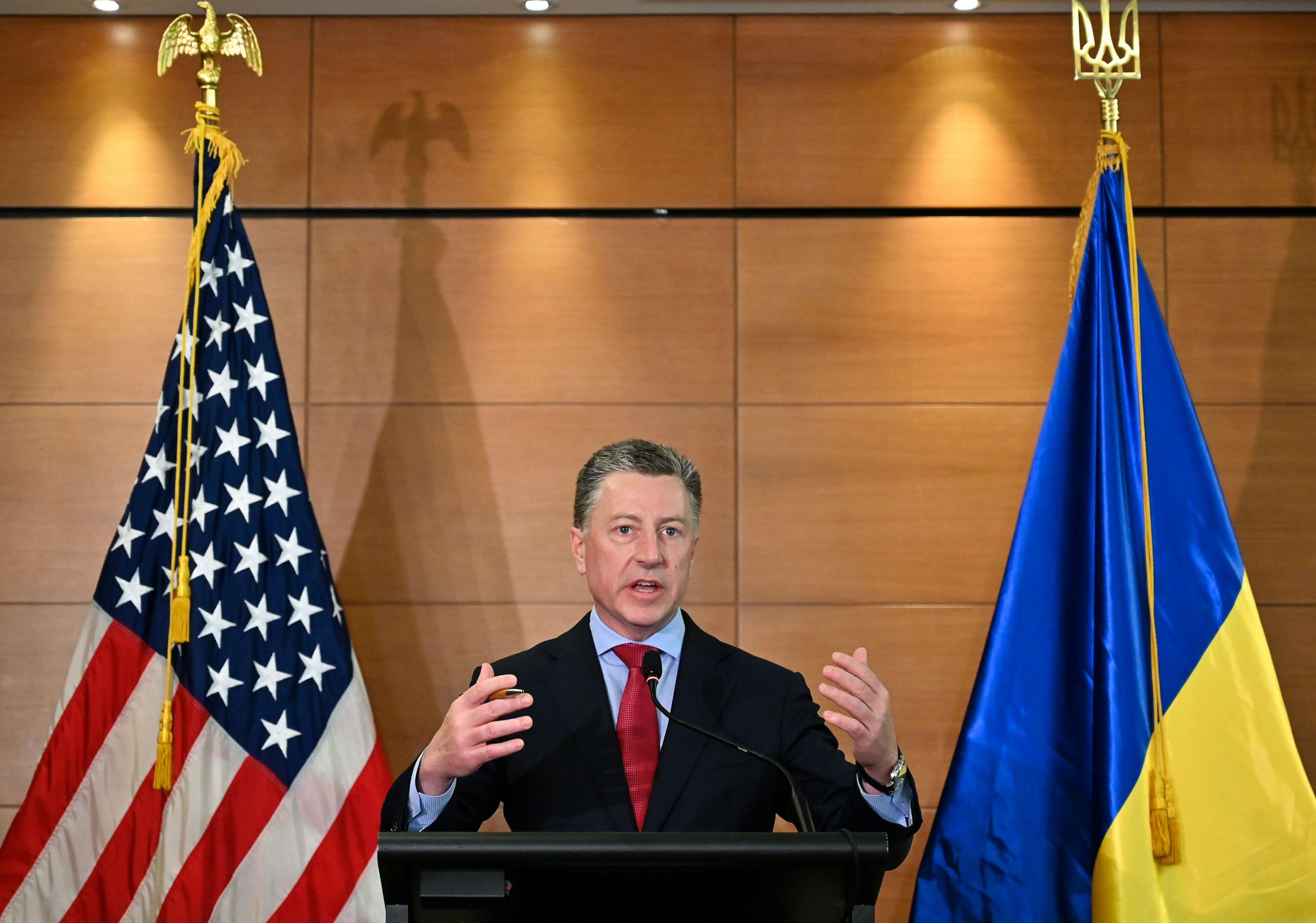Trump administration officials agree to testify about Ukraine call for impeachment investigation
Decision to cooperate is powerful rebuke to secretary of state Mike Pompeo
Your support helps us to tell the story
From reproductive rights to climate change to Big Tech, The Independent is on the ground when the story is developing. Whether it's investigating the financials of Elon Musk's pro-Trump PAC or producing our latest documentary, 'The A Word', which shines a light on the American women fighting for reproductive rights, we know how important it is to parse out the facts from the messaging.
At such a critical moment in US history, we need reporters on the ground. Your donation allows us to keep sending journalists to speak to both sides of the story.
The Independent is trusted by Americans across the entire political spectrum. And unlike many other quality news outlets, we choose not to lock Americans out of our reporting and analysis with paywalls. We believe quality journalism should be available to everyone, paid for by those who can afford it.
Your support makes all the difference.Two members of the Trump administration have agreed to testify to Congress’ impeachment investigations into the president’s allegedly inappropriate outreach to the leader of Ukraine – apparently rejecting Mike Pompeo’s demand that they not cooperate.
As Mr Trump used Twitter to denounce the whistleblower who has claimed the president asked Ukraine’s president to dig up dirt on Joe Biden, and as the secretary of state accused Democrats of seeking to “intimidate and bully” his employees, two senior members of the state department’s diplomatic staff said they would provide information.
Marie Yovanovitch, the former US ambassador to Ukraine, who was brought back to Washington several months early, will provide a deposition on 11 October.
Meanwhile, Kurt Volker, the former special envoy to Ukraine who resigned from his position last Friday, will appear before the intelligence committee of the House of Representatives on Thursday, committee sources told the US media.
The decision by the two diplomats, one of whom is still employed by the state department, will be seen as of considerable significance. On Tuesday, Mr Pompeo had made clear he did not want five state department officials whose testimony had been sought by Democrats, to cooperate.
“I am concerned with aspects of your request that can be understood only as an attempt to intimidate, bully and treat improperly the distinguished professionals of the department of state, including several career foreign service officers, whom the committee is now targeting,” he wrote to Democratic congressman, Eliot Engel, chair of the House foreign affairs committee, which had sought depositions from the five individuals.
Mr Engel, with two other committee chairs, Adam Schiff and Elijah Cummings, accused Mr Pompeo of stonewalling.
“He should immediately cease intimidating department witnesses in order to protect himself and the president,” they wrote.
Neither Mr Volker or Ms Yovanovitch were mentioned by name in the redacted memo the White House released last week of the 25 July phone call between Mr Trump and Volodymyr Zelensky.
Mr Trump does say that Ms Yovanovitch, who was recalled in May, was “bad news”. He added: “The people she was dealing with in the Ukraine were bad news.”
However, both are referred to by name in the whistleblower complaint that is currently at the centre of the Democratic impeachment probe, and which accuses Mr Trump of “using the power of his office to solicit interference from a foreign country in the 2020 US election”.

It says Ms Yovanovitch had criticised chief prosecutor Yuriy Lutsenko, and attacked his organisation for its poor record on fighting corruption.
It said Mr Volker had been among those US officials tasked within containing “the damage” to US national security caused by outreach to Mr Zelensky, by Rudy Giuliani, Mr Trump’s personal lawyer.
Also on Tuesday, as Mr Trump said he was seeing to identify the whistleblower, senior Republican senator Chuck Grassley, said he would do all he could to protect him.
“This person appears to have followed the whistleblower protection laws and ought to be heard out and protected. We should always work to respect whistleblowers’ requests for confidentiality,” said Mr Grassley, chair of the Senate judiciary committee.
“No one should be making judgements or pronouncements without hearing from the whistleblower first and carefully following up on the facts.”
It was not immediately clear whether three other members of the state department - deputy assistant secretary of state George Kent, state department counsellor T Ulrich Brechbuhl and US ambassador to the European Union, Gordon Sondland - planned to cooperate with the Democrats’ request for them to provide information.
Additional reporting by agencies

Join our commenting forum
Join thought-provoking conversations, follow other Independent readers and see their replies
Comments